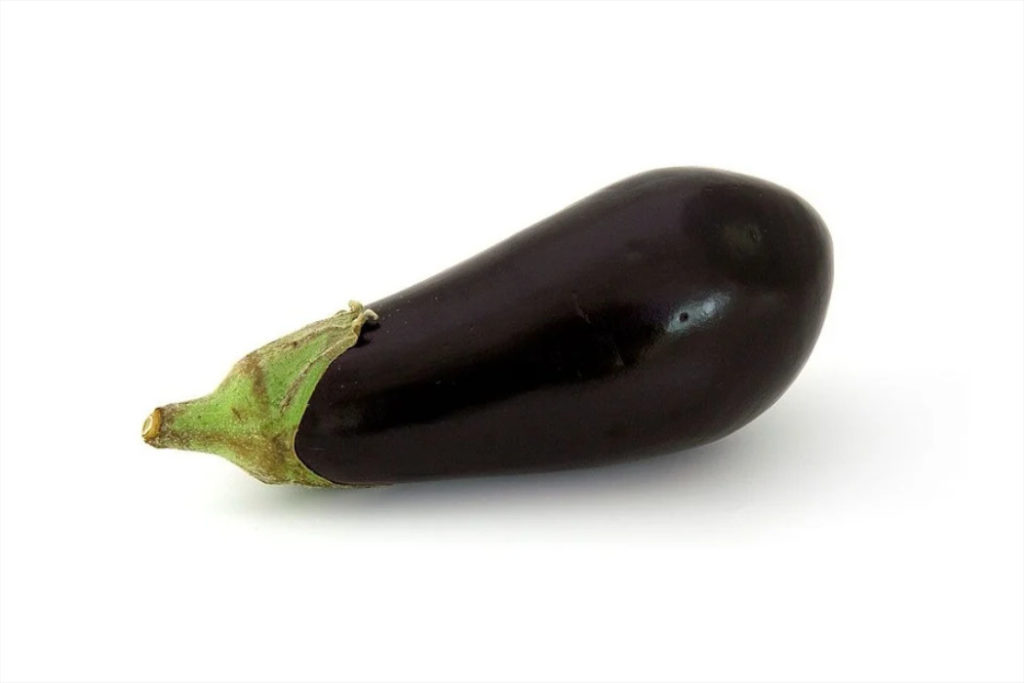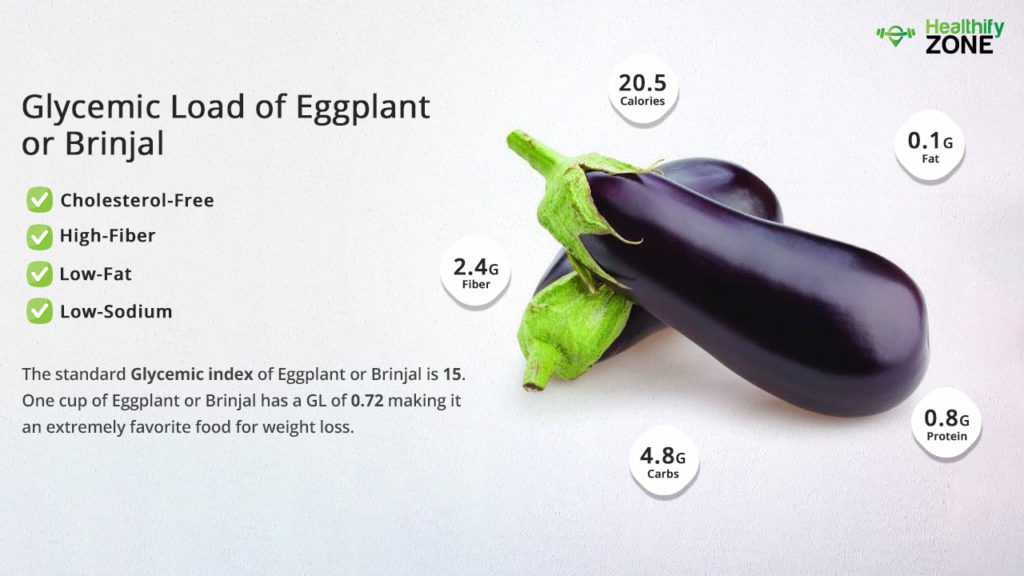Glycemic Load is a classification of foods that contain sugar and carbohydrates. This measures the food’s effect on our blood sugar levels and how drastically it makes it rise. The Glycemic Index is a system where numerics is assigned to foods, according to how quickly it makes your blood sugar rise. This is an easy way to make healthy choices. Glucose has a higher blood glucose response in comparison to fructose.
Eggplant, or Brinjal, or Aubergine, is from the nightshade family of plants. It is used in various parts of the world, and although it is considered a vegetable, it is technically a fruit. According to the International GI Tables, it has a GI of 15. Other than its unique texture and mild flavors, eggplant has a variety of health benefits.

Eggplants are dense in nutrients and comprise various vitamins, minerals, and fiber.
- Manganese
- Folate
- Potassium
- Vitamin K
- Vitamin C
- Niacin
- Magnesium
- Copper
How to Calculate Glycemic Load of Eggplant or Brinjal?
The standard Glycemic index of brinjal is 15. The high glycemic index of the foods helps in reducing the risks related to cardiovascular diseases. If we want to talk about diet, the key to prevent diabetes or any chronic illness is to distribute the carbohydrate consumption content throughout the day and manage the sugar levels in the body correctly—owing to the low glycemic load of eggplant, they can be consumed seamless during any meals.
The Formula/Procedure For Calculation of Glycemic Index of the Brinjal :
GL = GI * carbs / 100
where
- GL – glycemic load;
- GI – glycemic index;
- and carbs – the amount of carbohydrates in the portion.

| SL.NO | Eggplant BY WEIGHT IN (g) | GLYCEMIC LOAD |
| 1. | 100 g of Brinjal | 0.9 (very low) |
| 2. | 250 g of Brinjal | 2.25 (low) |
| 3. | 500 g of Brinjal | 4.5 (low) |
| 4. | 1 Kg of Brinjal | 9 (low) |
| 5. | One Whole Brinjal (450 g) | 4.05 (low) |
| 6. | 1 Cup of Brinjal (83 g) | 0.72 (very low) |
Is Eggplant or Brinjal Safe to Consume If You Have Diabetes?
It is said that adding eggplants to your diet may be helpful in keeping your blood sugar in check. That is because of the high amount of fiber, which passes through the digestive system intact. Fiber is known to lower blood sugar by slowing the rate of digestion and absorption of sugar. This helps in maintaining blood sugar levels and avoiding spikes and crashes. A study shows that plant compounds that can reduce sugar absorption and increase insulin secretion, which helps lower blood sugar levels. So, eggplant is an excellent addition to your diet if you have diabetes.
Can I Eat Eggplant or Brinjal During a Fat-Loss Diet?
You can eat brinjal during a strict fat-loss diet. If you are looking for good results, you should avoid having more than 250 g of sliced brinjal per serving.

- A 250g serving of eggplant has a GL of 2.25 which is low.
- They are high in fibers and low in calories, which fits right into your fat-loss regime.
Can I Eat Eggplant or Brinjal During a Low-Carbohydrate Diet?
You can eat brinjal during a strict low-carb diet. However, it is important not to overdo anything. It is suggested that you do not consume more than 250 g each serving.
Is Eggplant or Brinjal High in Sugar?
100 g of eggplant has 3.5 g of sugar and 6 g of carbs. It is low in both carbs and sugar. It is a great addition to your diet because of itis high in fiber, low in calories, rich in nutrients, and exceptionally versatile.